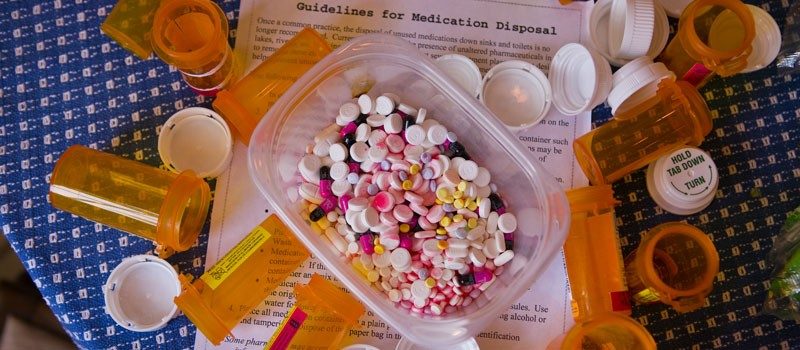
By Janet A. Asper
Imagine that you had been sick, but then you took some medicine that healed you. You’re now feeling better and don’t need a certain pill anymore. What should you do with your leftover medicine? You might think about dumping it in the trash, or maybe flushing it down a sink or toilet. But those are not the best ways to get rid of leftover medicine. By disposing of these drugs properly, you are being a good citizen. Keep reading to learn how!
How do people end up with leftover drugs?
There are many ways, including:
- A doctor may prescribe more pills than you need. For example, you might have gotten painkillers for a broken arm—but once it’s healed, it doesn’t hurt anymore.
- You doctor may switch you to a different medication that’s better for you.
- You may have some leftover medicines, like ones for headaches or allergies, that expired before you used up the whole bottle.
- You might have an allergic reaction to a drug, and you have to stop taking it before you’ve used up your supply.
- Rarely, a drug may get recalled if there was a problem in the way it was made or stored. When this happens, your parent or guardian will usually take the unused medicine back to a pharmacy.
Safely disposing drugs—the why and how
Drugs be disposed of responsibly. Discarding unwanted and expired medicines in the right way saves lives and protects our environment!
In the United States, there are two kinds of places where people can dispose of unwanted drugs. The first kind are permanent collection sites, which can include pharmacies, police stations, and hospitals. Adults can drop off the medicines in person or by mail, or the collection site sometimes provide in-home kits for safe disposal of medicines. You can also type “drug disposal near me” on Google Maps to find a convenient place to drop off unwanted medication.
The second kind are periodic collection sites. Each year, the U.S. Drug Enforcement Agency holds National Prescription Drug Take Back Day on the last Saturday of April and October (you can learn more about the upcoming dates online). Drug take back boxes are large metal boxes that look like mailboxes. They’re locked, but have a small opening through which you drop your unwanted medicine containers. All the medicines in placed the box get completely destroyed. Your parent or guardian should remove all personal identification from the containers before dropping off the unused medicine.
Can’t find a drug take back program?
Always look for the specific disposal instructions that come with the medications. Your parent or guardian should not flush away any unused medicine, unless it’s on FDA’s flush list!, otherwise they should mix the unused pills or liquids with yucky items like cat litter, dirt, or ground coffee waste. Do not crush pills or capsules. Instead, place the mixture in a sealed plastic bag and throw it away with your regular trash. Remember to remove all personal identification from the prescription medicine containers before disposing of them.
Much like a yearly spring cleaning of your home, our medicine cabinets need cleaning too! Along with a grownup, look in drawers, cabinets, and bathrooms for medication at home that you don’t or can’t use anymore, and clean them out! Make it a fun yearly activity to do with your parent or guardian. It's up to you to become the drug disposal champion of your household!
Janet A. Asper is Professor of Chemistry at the University of Mary Washington, in Fredericksburg, Virginia.

